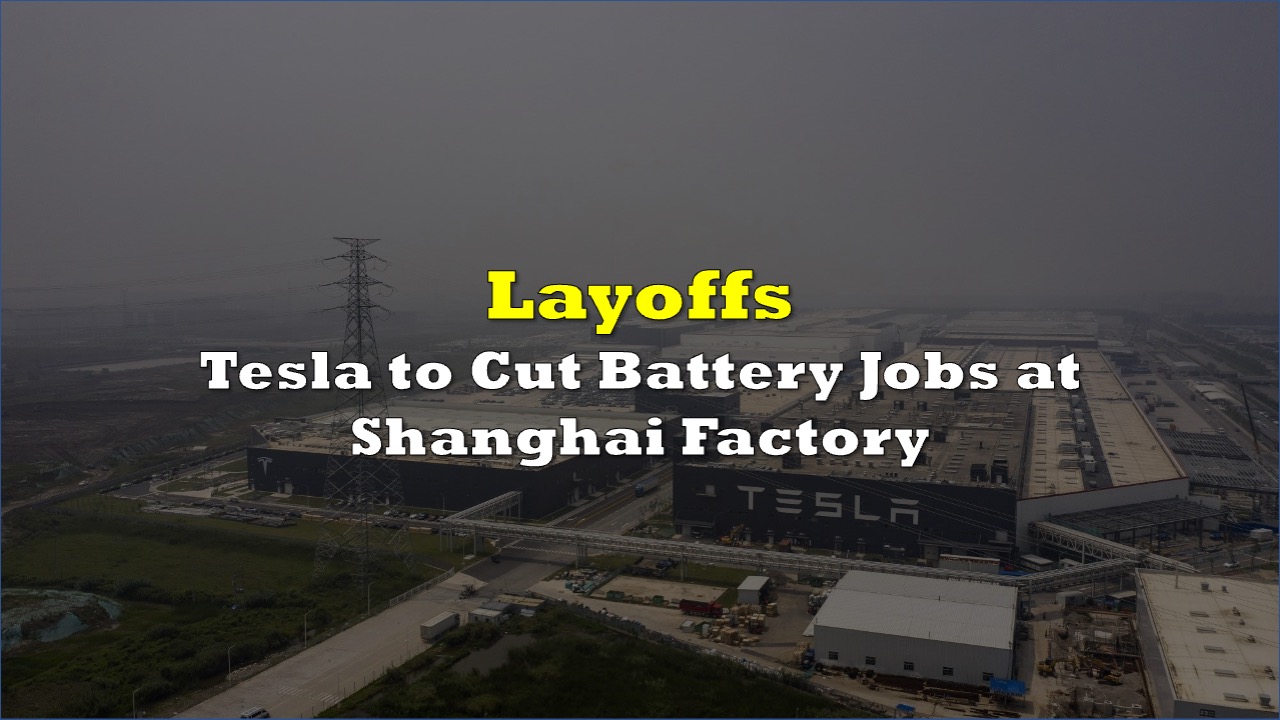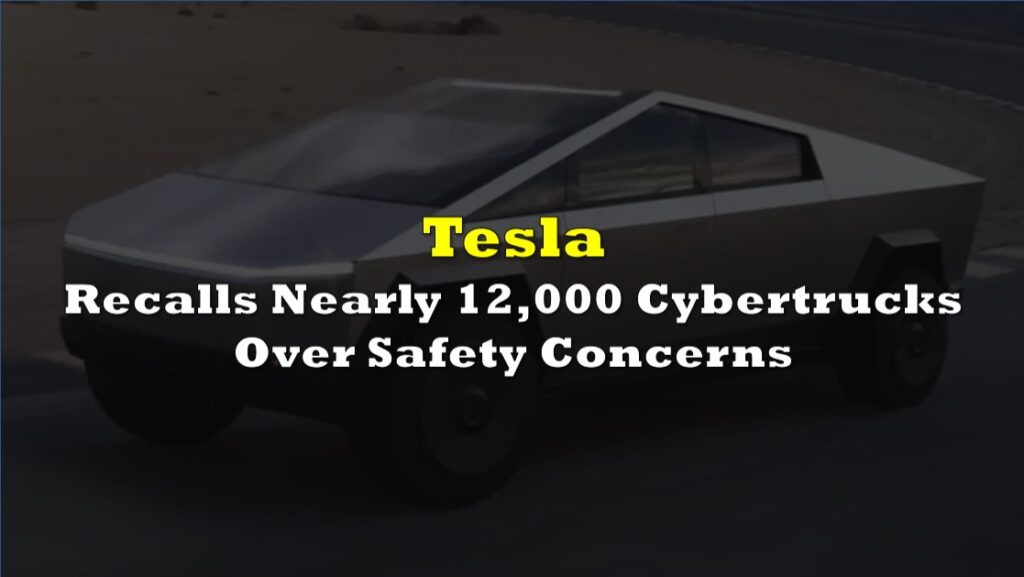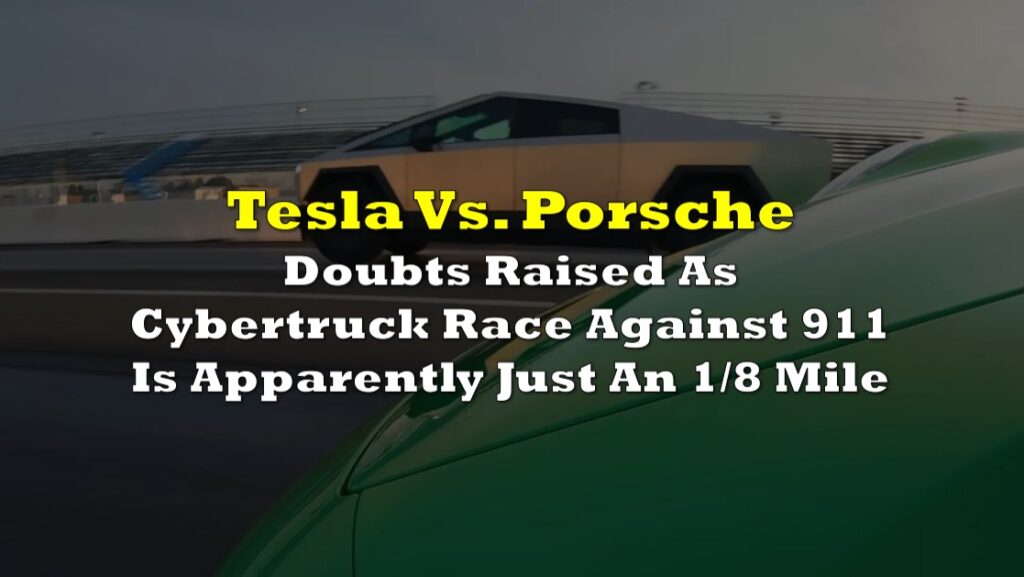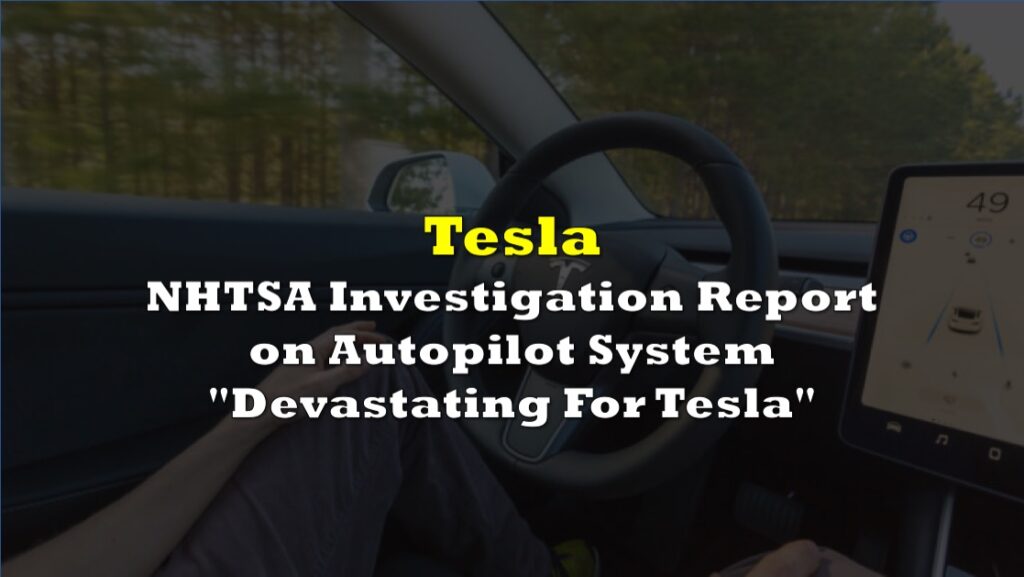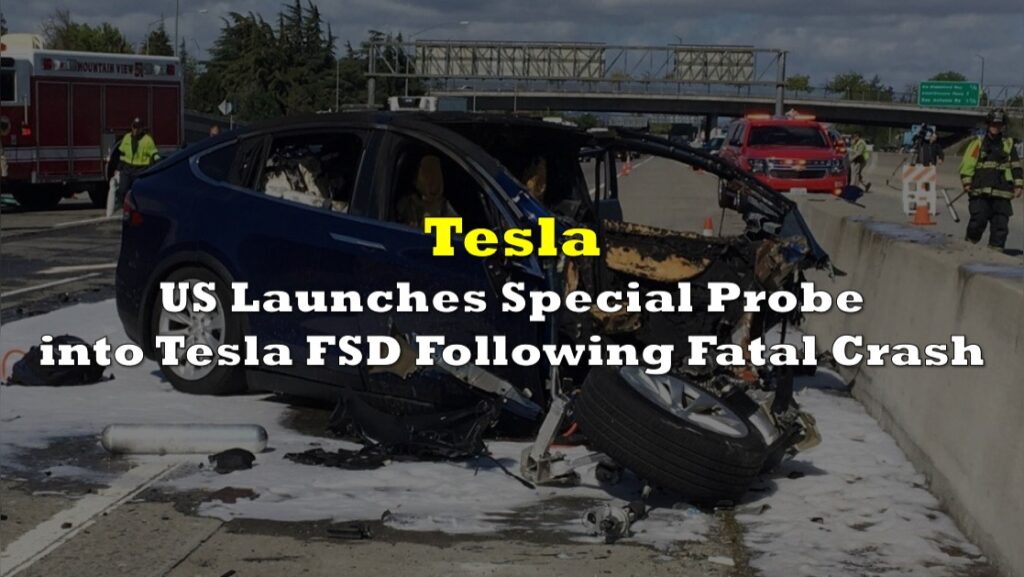According to insider sources, Tesla Inc. (Nasdaq: TSLA) is dropping the axe on some battery production jobs at its Shanghai factory, just as the electric carmaker fights through intense price competition in China’s automobile market.
Employees involved in cell assembly lines at the initial phase of the plant, or the 1.0 battery line were reportedly notified this week, according to a report from Bloomberg. While the exact number of affected battery workers and the reasons behind the layoffs remain undisclosed, some employees have been offered the opportunity to transfer to different workshops within the factory. Tesla’s representatives in China have not provided any comments on the matter.
The Shanghai factory, capable of producing approximately 1 million vehicles annually, employs around 20,000 individuals. Although Tesla procures batteries from LG Energy Solution Ltd. and Contemporary Amperex Technology Co. Ltd., the company still needs to integrate the cells into battery modules and packs, a task primarily carried out in its battery workshop.
Sources revealed that Tesla is currently working on designing and constructing automation equipment that could potentially replace human labor in the battery production line. There are also reports that Tesla has stopped production on the 1.0 battery line in Shanghai as part of a change in its battery strategy and that it will be outsourcing battery packs to suppliers as the carmaker moves toward upgrading the batteries of its Model 3 and Model Y vehicles.
Deliveries from the Shanghai factory witnessed a nearly 20% increase in June compared to the previous year, amounting to 93,680 vehicles. The company also achieved record-breaking global deliveries in the second quarter, surpassing expectations with a total of 466,140 vehicles.
Tesla’s operating margin decreased to 11.4% in the first quarter, reaching a two-year low due to price reductions implemented in January and March. CEO Elon Musk has expressed willingness to accept lower profits per car sold. Recently, Tesla and several other Chinese automakers pledged to uphold fair competition and avoid “abnormal pricing” in the world’s largest electric vehicle market.
Information for this story was found via Bloomberg, and the sources and companies mentioned. The author has no securities or affiliations related to the organizations discussed. Not a recommendation to buy or sell. Always do additional research and consult a professional before purchasing a security. The author holds no licenses.

